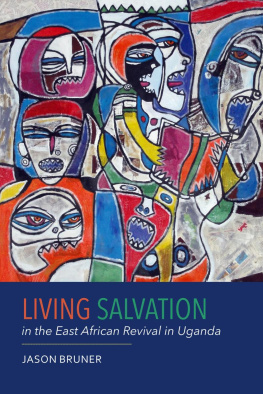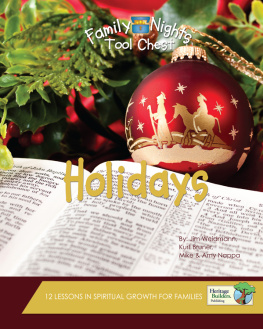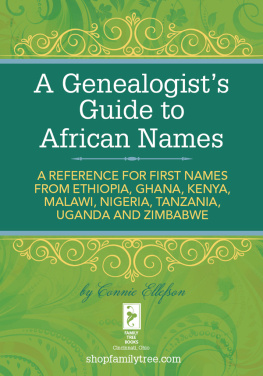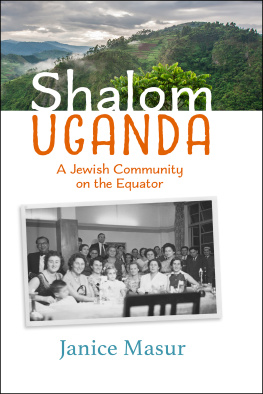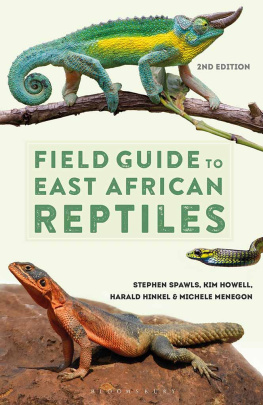Living Salvation in the East African Revival in Uganda
Starting in the mid-1930s, East African revivalists (or, Balokole: the saved ones) proclaimed a message of salvation, hoping to revive the mission churches of colonial East Africa. Frustrated by what they believed to be the tepid spiritual state of missionary Christianity, they preached that in order to be saved, converts had to confess publicly the specific sins they had committed, putting them in the light. By walking in the light with other revival brethren, converts reoriented their lives, articulating this reorientation in the stark terms of light and darkness: they had left their dark past and now lived in the light of salvation.
This book uses missionary and Colonial Office archives, contemporary newspapers, archival collections in Uganda, anthropologists field notes, oral histories, and interviews by the author in order to reexamine the first twenty years of the East African revival movement (roughly, 1935-1955). Focusing upon the creative, controversial, and remarkable efforts of the ordinary African Christians who comprised the vast majority of the movement, it challenges previous historical analyses that have seen in the revival the replication of British evangelical holiness spirituality or, alternatively, a manifestation of late colonial dissent. Instead, this study argues, the Balokole revival was a movement through which African Christians articulated and developed a unique spiritual lifestyle, one that responded creatively to the sociopolitical contexts of late colonial East Africa.
Jason Bruner is Assistant Professor of Global Christianity at Arizona State University.
Rochester Studies in African History and the Diaspora
Toyin Falola, Series Editor
The Jacob and Frances Sanger Mossiker Chair in the Humanities and University Distinguished Teaching Professor
University of Texas at Austin
Recent Titles
Manners Make a Nation: Racial Etiquette in Southern Rhodesia, 19101963
Allison K. Shutt
Guardians of the Tradition:
Historians and Historical Writing in Ethiopia and Eritrea
James De Lorenzi
Ira Aldridge: The Last Years, 18551867
Bernth Lindfors
Population, Tradition, and Environmental Control in Colonial Kenya
Martin S. Shanguhyia
Humor, Silence, and Civil Society in Nigeria
Ebenezer Obadare
Nation as Grand Narrative: The Nigerian Press and the Politics of Meaning
Wale Adebanwi
The Rise and Demise of Slavery and the Slave Trade in the Atlantic World
Edited by Philip Misevich and Kristin Mann
The Power of the Oath: Mau Mau Nationalism in Kenya, 19521960
Mickie Mwanzia Koster
Cotton and Race across the Atlantic: Britain, Africa, and America, 19001920
Jonathan E. Robins
Islam, Power, and Dependency in the Gambia River Basin: The Politics of Land Control, 17901940
Assan Sarr
A complete list of titles in the Rochester Studies in African History and the Diaspora series may be found on our website, www.urpress.com.
Acknowledgments
I have heard people liken writing a book to a monastic vocation, by which they usually seem to mean that finishing a book takes a profoundalmost irrationalcommitment to persist in quiet, solitary work. While it is true that much of this book was written at hours rarely seen by those other than parents of young children and the most devout, I am also aware that, despite the stereotype, monasteries are communal places. And so I would like to thank a number of people who steered me intellectually, facilitated my research, helped me think it through, and enabled me to write about itpeople who, communally, helped make this book possible.
This book is the extended result of a suggestion made by my then doctoral advisor, Prof. Richard Fox Young, who asked me in a conversation, Why dont you look more closely at public confession? This question, along with many after, helped me to see the East African Revival in a different light, and it cued me in to dimensions of the revival that I had paid insufficient attention to. His guidance, criticisms, and encouragement were invaluable, as was his insistence that the story of the revival that needed to be told had much less to do with missionaries than I was originally willing to admit. For all these things, I am grateful.
In the United Kingdom, my research was made possible in part through a research grant from the Historical Society of the Episcopal Church. Library staff were invaluable at several institutions, including the British Library Newspaper Library, The National Archives at Kew Gardens, the archives of the School of Oriental and African Studies at the University of London, and the Lambeth Palace Library. I want to express my sincere appreciation for the very generous staff at the Cambridge Centre for the Study of Christianity World-wide (formerly the Henry Martyn Centre at Westminster College), particularly Dr. Emma Wild-Wood.
While I was conducting research at the Henry Martyn Centre, I had a serendipitous meeting with Philip and Frances Attwood, who graciously invited me to their retreat center outside of Kampala. It was through their friendship that I was introduced to the late Rev. Dr. Solomon Nkesiga and his wife, Rev. Diana Nkesiga. Both Solomon and Diana enriched my time and research in Uganda in numerous ways, especially by connecting me with Balokole in the Kampala area. It was through their connections that I found many of the people whom I interviewed. Likewise, I particularly want to thank Rev. Canon Christopher Mafabi, Rev. Canon Theophilus and Sarah who were gracious enough to host my wife and me in the Mbale area. Rev. Mafabi also arranged and translated several interviews, for which I am very grateful. This project would be much impoverished without their generous assistance. While I was in Uganda, I also met Richard and Sheila Burt, who were then kind enough to allow me to stay at their home outside of London for a brief time while I conducted research at the School of Oriental and African Studies.
Dr. Alex Kagume Mugisha of Uganda Christian University provided the institutional affiliation with the Uganda National Council of Science and Technology, which permitted me to conduct research in Uganda. I also want to thank the archival staff at the Bishop Tucker School of Theology Library, who were particularly helpful in locating pertinent materials.
Friends and colleagues in both formal and informal settings helped me think through my research and arguments. Among them (in no particular order), were Prof. Brian Stanley, Kevin Ward, Joel Carpenter, Derek Muwina, Gaymon Bennett, Leah Sarat, Moses Moore, Andrew Barnes, James Bielo, and Katrien Pype. My special thanks go to the members of the Religion and Imperialism in Africa graduate seminar at ASU who helped me articulate many of the arguments I developed in this book, as well as the opportunity extended by Prof. Juliane Schober and Prof. Steven Collins, who invited me to present in their seminar, Civilizational Dynamics and Practices of Self. And, finally, I wish to thank T. J. Tallie, who thoughtfully and graciously read and commented on earlier drafts of multiple chapters. Additional research in the United Kingdom in 2014 was funded through the School of Historical, Philosophical, and Religious Studies at Arizona State University.



